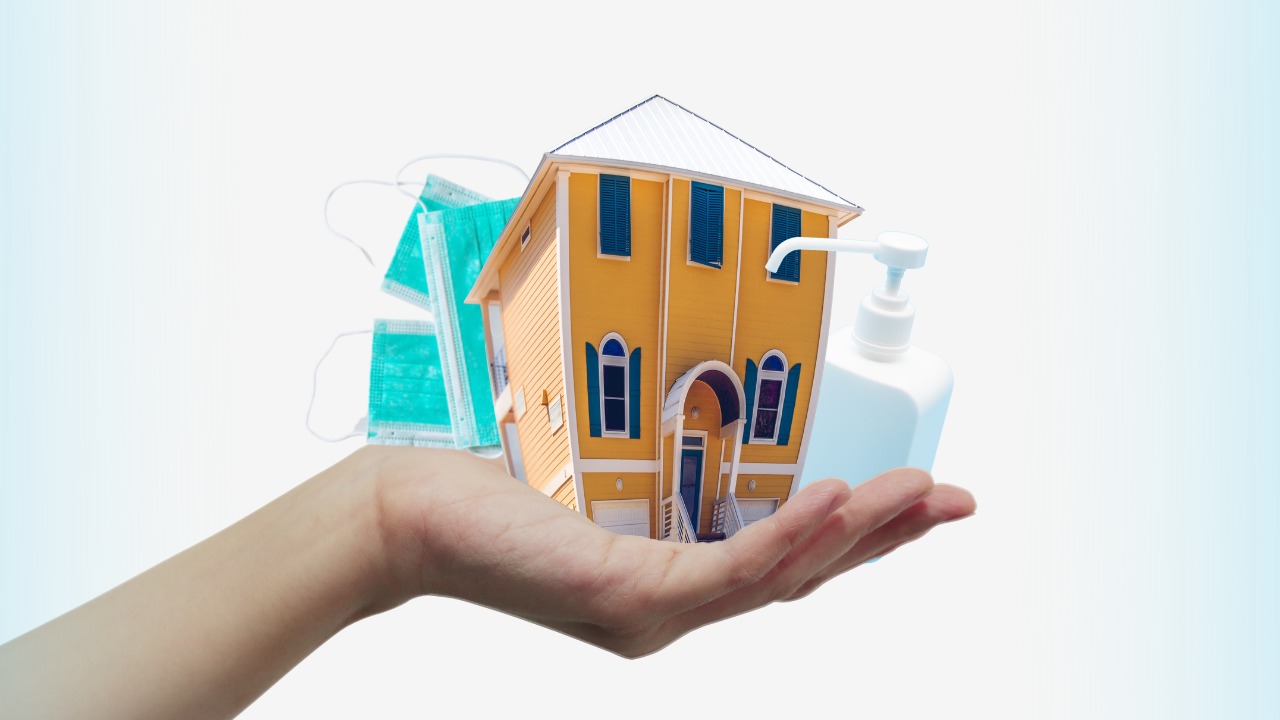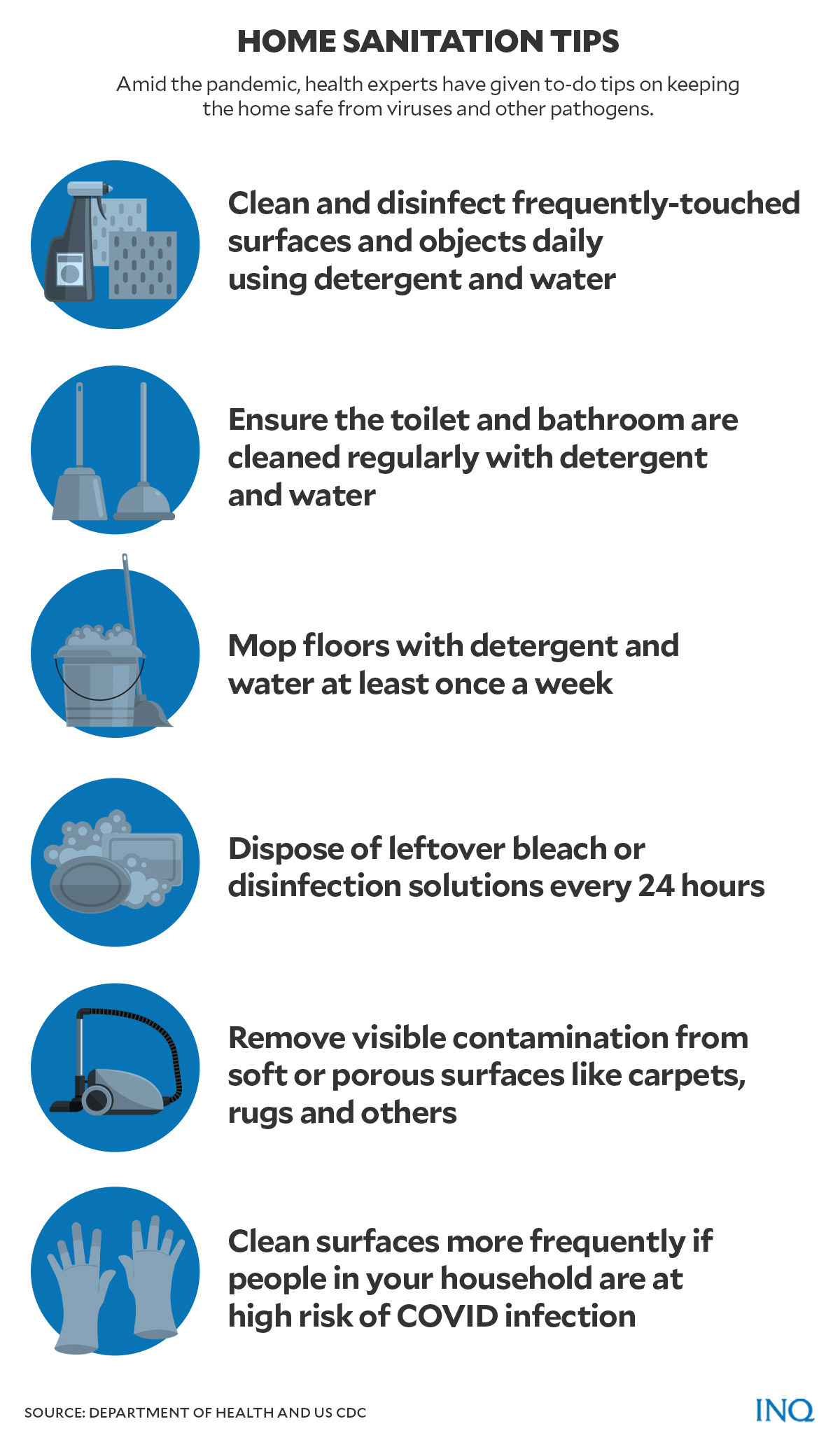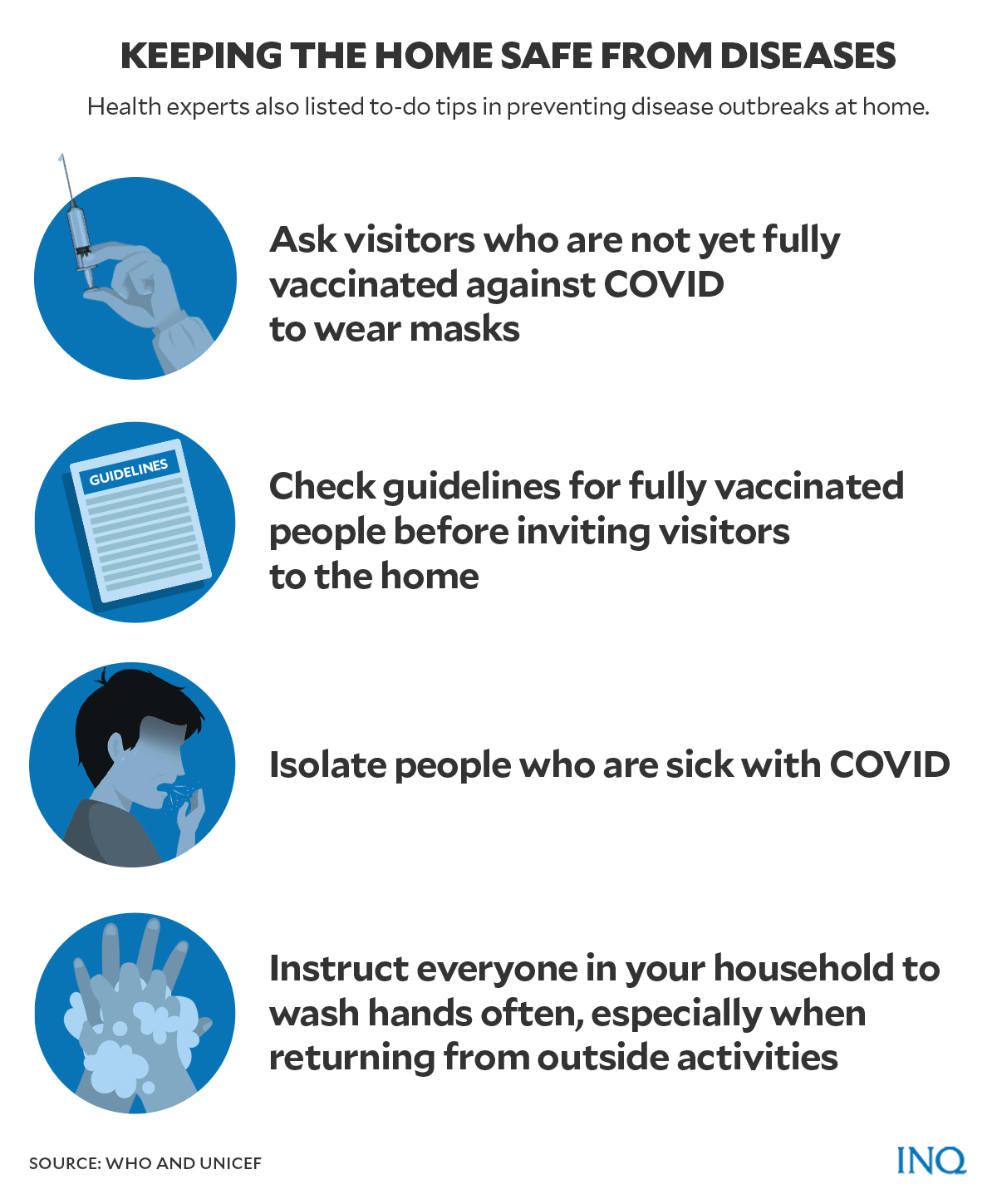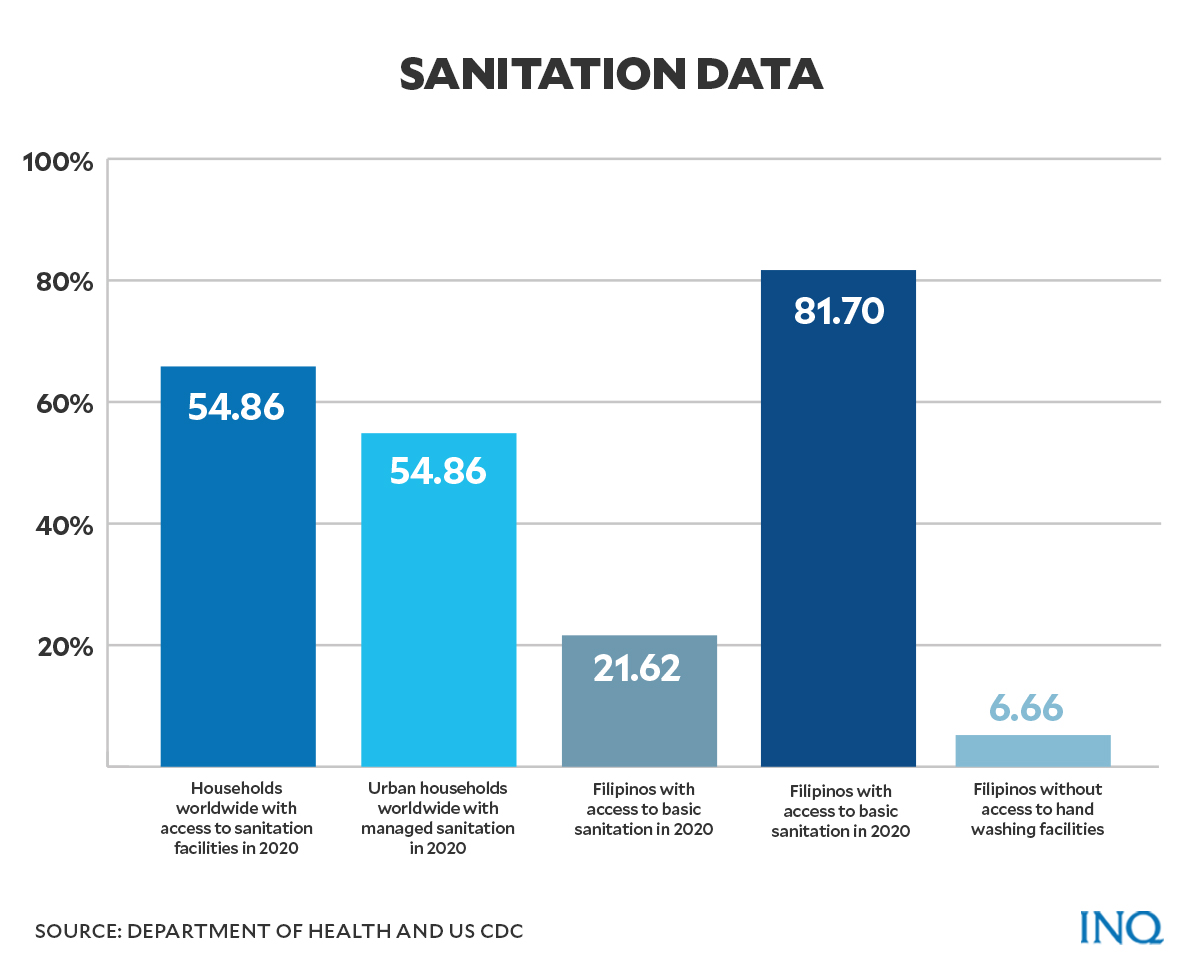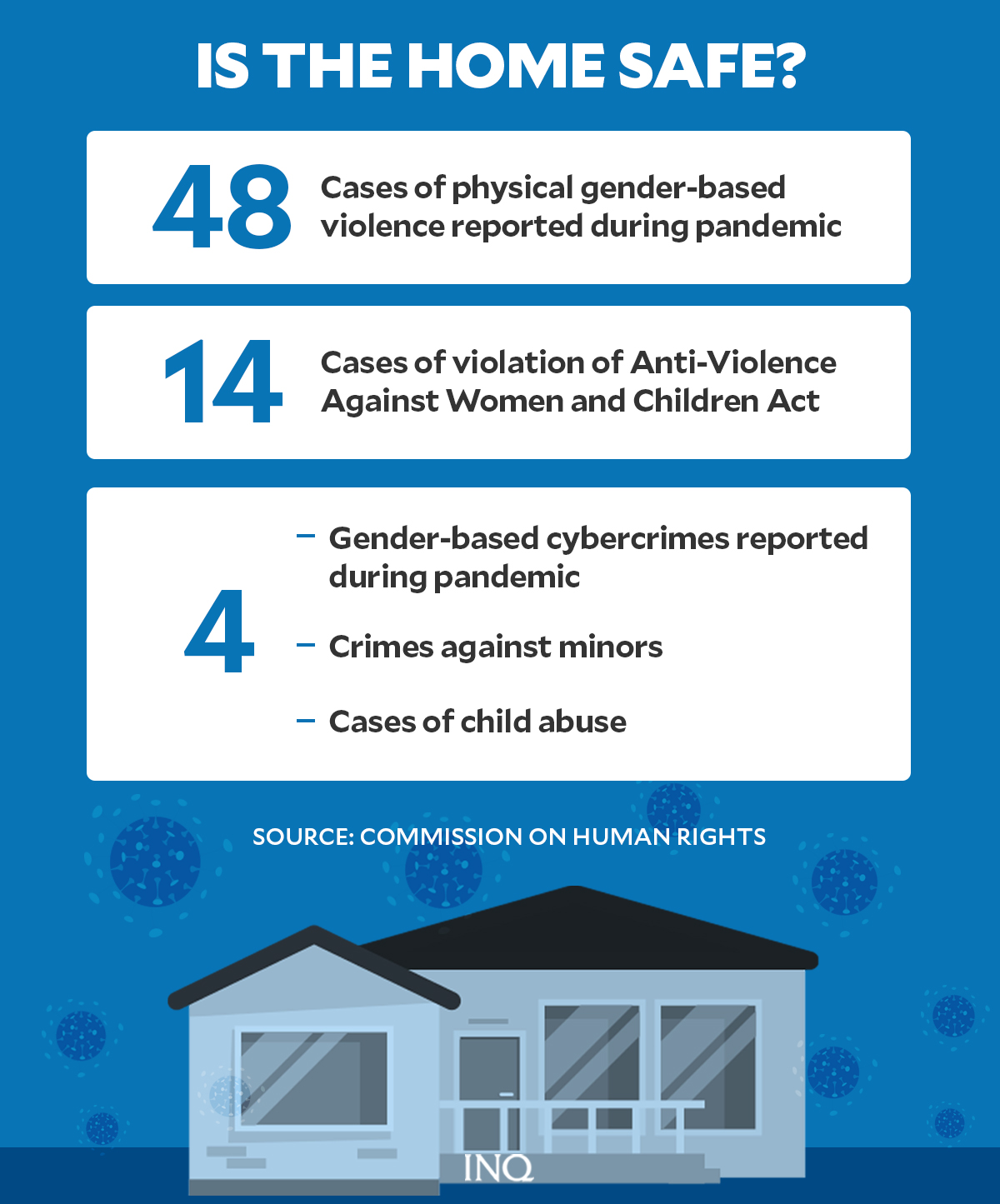Home Safety Month: Keeping COVID and its dangers at bay
MANILA, Philippines—Ever since the COVID pandemic hit the country, the observation of the Home Safety Month had a different meaning for many, as the notion of safety has shifted toward the protection against the viral disease that has no known cure yet.
As the country observes Home Safety Month this year, for the second time under the pandemic, here are some data and guidelines on how we can keep our homes safe against SARS-CoV-2—the virus that causes COVID-19—and other dangers brought by the disease.
Home safety month
The yearly commemoration of the Home Safety Month every November is part of the annual celebration of the Safety and Accident Prevention Year, which promotes the notion that prevention is better than cure in various fields each month of the year.
Proclamation No. 115-A was signed in 1966 by the late dictator Ferdinand Marcos to promote “safety consciousness” in the midst of “indisputable evidence of a considerable rise in accident occurrence every year.”
“These accidents not only cause heavy financial losses and consequent economic dislocation among those affected and to our country at large, but also immeasurable human suffering,” the proclamation stated.
Article continues after this advertisementThese accidents, as mentioned in the proclamation, may happen only in industrial, commercial, and agricultural enterprises. However, those that occur on the highways, schools, and homes are mostly unrecorded.
Article continues after this advertisementHome Safety Month, in general, also promotes awareness of risks and potential dangers in homes that might lead to injury or death. Such risks and dangers might be as simple as cluttered spaces to more serious issues like fire and other hazardous risks.
READ: Childproofing the COVID-ready home
COVID-19 impact
Practicing good hygiene and maintaining cleanliness has become one of the most tried and tested practices to prevent COVID-19—which spreads quickly via droplets of respiratory fluids.
“Cleaning with a household cleaner that contains soap or detergent reduces the amount of germs on surfaces and decreases risk of infection from surfaces,” the United States Centers for Disease Control and Prevention said.
“In most situations, cleaning alone removes most virus particles on surfaces,” it added.
Based on the interim guidelines issued by the Department of Health (DOH), here are some tips on how to keep homes COVID-proof amid the still rising cases of infections in the country.
- Clean and disinfect frequently-touched surfaces and objects daily (e.g. tables, countertops, light switches, doorknobs, and cabinet handles) using regular household detergent and water.
- Ensure the toilet and bathroom are cleaned daily with regular household detergent and water.
- Mop floors with regular household detergent and water at least once a week.
- Leftover bleach or disinfection solution must be disposed of and remixed every 24 hours.
- For soft or porous materials like carpets, rugs, and drapes, remove visible contamination and clean with appropriate cleaners indicated for use of these surfaces.
- Clean surfaces more frequently if people in your household are at high risk of getting sick with COVID.
As the country slowly reopens the economy and loosens restrictions in some areas—and as the holiday season draws near—some households might also begin to open their homes for visitors.
Here are some tips from the US CDC on how to limit contamination of surfaces from airborne particles:
- Ask visitors who are not yet fully vaccinated to wear masks.
- Follow necessary guidelines for fully vaccinated people before inviting visitors to the home.
- Isolate people who are sick with COVID-19.
- Instruct everyone in your household to wash hands often, especially when returning from outside activities.
READ: When cleaning does not spark joy: Measuring stress of keeping dirt away
Water and sanitation
A 2020 report by World Health Organization (WHO) and Unicef Joint Monitoring Programme for Water Supply, Sanitation and Hygiene (JMP) said that 81.71 percent of Filipinos had basic access to basic hand washing facilities with soap and water last year.
The numbers went up from the pre-pandemic figures which were 1.64 percent recorded in 2015, 81.65 percent in 2016, 81.66 percent in 2017, 81.68 percent in 2018, and 81.69 percent in 2019.
Around 85.27 percent of residents from urban areas and 78.51 percent of residents from rural areas were able to practice hand washing with basic hand washing facilities in 2020.
About 11.62 percent relied on washing facilities without soap and water, while 6.66 percent had no access to hand washing facilities.
READ: WHO-Unicef report: Nearly half of Filipinos get safe drinking water
The Commission on Human Rights (CHR) had called on the government to ensure that citizens have access to safe drinking water and sanitation amid the COVID pandemic.
The CHR, according to its spokesperson Jacqueline de Guia last March, “received reports that thousands of households in the country experience water service disconnection due to people’s inability to pay their bills on time in the midst of the COVID-19 pandemic.”
“The CHR underscores the obligation of the government to guarantee people’s access to water and sanitation, particularly those who are in the most vulnerable situations,” she added.
The commission also warned that if access to water, “a universally-recognized human right,” becomes restricted amid the pandemic, it could lead to “spikes in coronavirus outbreaks, particularly in high-density communities where social distancing is not possible.”
Locked down
However, aside from ensuring safety against COVID, another issue that should be addressed in line with Home Safety Month should be threats against women and children amid the ongoing lockdowns, which have kept children away from schools.
Based on data from the 2015 National Baseline Survey on Violence Against Children in the Philippines, many children in the country experience physical, sexual, and online abuses within the four walls of their homes.
The quarantines and surge of COVID cases during the past months have also led to increasing cases of domestic violence worldwide.
“Movement restrictions, the closure of schools, loss of income, isolation, overcrowding and high levels of stress and anxiety are increasing the likelihood that children experience and observe physical, psychological and sexual abuse at home—particularly those children already living in violent or dysfunctional family situations,” Unicef said.
According to data from the Philippine Commission on Women (PCW), there were 13,923 reported cases of violence against women and their children between March 15 to Nov. 13, 2020.
At least 4,747 of these were cases of violence against children.
READ: As COVID shuts down schools, homes become unsafe places for kids
Data from CHR’s Gender-Based Violence Observatory Online Reporting Portal showed that there was 57 reported cases of gender-based violence online in the country amid the pandemic.
These cases include, but were not limited to:
- Physical violence: 14
- Anti-Violence Against Women and their Children Act (VAWC) of 2004: 14
- Cybercrime: 4
- Minor: 4
- Child abuse: 4
According to the 2021 Global Threat Assessment report by WeProtect Global Alliance, a 265-percent increase in online child sexual abuse between March and May 2020 was recorded in the Philippines—which has been identified by Unicef as the “global epicenter of the livestream sexual abuse trade.”
READ: Pandemic worsens online child sexual abuse in PH, says global report
TSB
For more news about the novel coronavirus click here.
What you need to know about Coronavirus.
For more information on COVID-19, call the DOH Hotline: (02) 86517800 local 1149/1150.
The Inquirer Foundation supports our healthcare frontliners and is still accepting cash donations to be deposited at Banco de Oro (BDO) current account #007960018860 or donate through PayMaya using this link.
